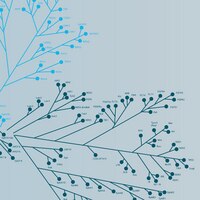Primary structural determinants essential for potent inhibition of cAMP-dependent protein kinase by inhibitory peptides corresponding to the active portion of the heat-stable inhibitor protein.
Glass, D B, et al.
J. Biol. Chem., 264: 8802-10 (1989)
1989
Show Abstract
PKI-(5-24)-amide is a 20-residue peptide with the sequence, Thr5-Thr-Tyr-Ala-Asp-Phe-Ile-Ala-Ser-Gly-Arg-Thr-Gly-Arg-Arg-Asn-A la-Ile-His- Asp24-NH2, that corresponds to the active portion of the heat-stable inhibitor protein of cAMP-dependent protein kinase (Cheng, H.-C., Kemp, B. E., Pearson, R. B., Smith, A. J., Misconi, L., Van Patten, S. M., and Walsh, D. A. (1986) J. Biol. Chem. 261, 989-992). Amino acid residues in PKI-(5-24)-amide responsible for the potent inhibition (Ki = 2.3 nM) of the catalytic subunit of protein kinase were further investigated using deletion and substitution analogs of the synthetic peptide. Residues 5, 23, and 24 were not required for activity since the 17-residue PKI-(6-22)-amide retained full potency. Sequential removal of the first seven amino acids from the NH2 terminus of PKI-(5-24)-amide caused a progressive 50-fold loss of inhibitory potency. In contrast, substitution of either Thr6, Asp9, or Ile11 with alanine, or Ala8 by leucine, in PKI-(5-22)-amide produced less than 3-fold decreases in potency. Of the 2 aromatic residues in PKI-(5-22)-amide, the individual substitution of Phe10 and Tyr7 by alanine caused, respectively, 90- and 5-fold decreases in inhibitory potency, demonstrating important roles for each. This NH2-terminal portion of the peptide is believed to contain a significant portion of alpha-helix. Many recognition or structural determinants are also essential in the COOH-terminal portion of PKI-(5-22)-amide. In addition to the basic subsite provided by the three arginines, several other of the residues are critical for full inhibitory potency. Substitution of Ile22 by glycine in either PKI-(5-22)-amide or PKI-(14-22)-amide lowered the inhibitory potency by 150- and 50-fold, respectively. Separate replacement of Gly17 or Asn20, in either PKI-(5-22)-amide or PKI-(14-22)-amide, caused 7-15-fold decreases in potency. Substitution of both Gly17 and Asn20 together (in PKI-(14-22)-amide) produced a synergistic loss of inhibitory activity. [Leu13,Ile14]PKI-(5-22)-amide, a doubly substituted analog exhibited a 42-fold increase in Ki value. We conclude that Ser13 and/or Gly14, Gly17, Asn20, and Ile22 each contribute important features to the binding of these inhibitory peptides to the protein kinase, either by providing recognition determinants, inducing structure, and/or allowing essential peptide backbone flexibility.(ABSTRACT TRUNCATED AT 400 WORDS) | | 2722799
 |












